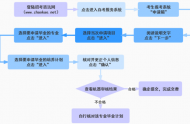大学路小编给大家带来了8月21日雅思阅读考试真题回忆(雅思阅读段落细节题特点解析)相关文章,一起来看一下吧。
本文目录一览:

2021年8月21日雅思阅读考试真题回忆
对于刚刚完成的8月21日的雅思考试,很多学生对于它的真题回顾比较感兴趣。那么这次的雅思考试都考了哪些方向的题目?随来看看2021年8月21日雅思的阅读考试真题回顾。
一、2021年8月21日雅思阅读真题与答案
Passage1:泰晤士河隧道
题型:判断+填空
1-8 判断
1. NOT GIVEN
2. TRUE
3. TURE
4. FALSE
5. TURE
6. NOT GIVEN
7. 待补充
8. FALSE
9-13 填空
9. technique
10. solidarity
11. headaches
12. accidents
13. government
Passage2:针对孩子的广告
题型:匹配+填空+选择14-20 匹配待回忆
21-23 填空
21.role-play
22.selling23.persuasive intend
24-25 选择
24.E25.B
Passage3: 植物如何传播种子
题型:待补充
二、雅思阅读考试要点
1、时间永远是您的敌人
在IELTS阅读测试中,TIME对绝大部分学生,特别是英文阅读水平相对一般的学生来说,更尤为至关重要。即使是英语为母语的人(NATIVE-ENGLISH SPEAKER)也无法在IELTS测试规定的时间内完全理解所有的词汇。因此,一定控制好TIME。
2、所问所答
IELTS测试的金玉良言就是:"所问所答"。首先,要完全了解问题的类型,及根据所提供的信息,再去回答问题。有的学生在参加完IELTS测试后总感觉所得分数与自己估算的分数相差甚远,原因无它,就在于对问题理解不够彻底,因此,也就无法对所提问题做到精确回答。
3、系统地制定学习计划
大部分参加(GENERAL MODULE)普通类测试的考生都已离开学校多年,甚至很长时间没有继续英文方面的学习。因此,必须尽量每天安排一定的时间,比如说每天一小时,并根据自身英文情况制定一个学习计划,稳步、系统地学习。阅读训练:争取每天阅读一定量的原版英文报刊、书籍,并非要读懂每一个字,或完全理解,只要能理解其中大至含义既可。可采取3:1的比例进行泛读与精读。
4、增加阅读速度
要增加英语阅读的速度,当然并非一朝一日即可达到。通常需要相当长一段时间的学习及训练。但无论如何,应加强英文基础训练,掌握必要的测试技巧,从而在现有的英文基础之上取得的成绩。
三、雅思阅读答题技巧
1、顺序细节题(except Matching题)基本上按顺序出题, 偶尔一两个题乱序
2、第一题一般根据头两段, 最后一题一般根据最后一段
3、考点插图一般有考点, 括号/引号里常有考点
4、转折词后常有考点
5、T/F/NG题出现only80%选FALSE, 出现some, most一般选TRUE
6、NG很少连续出现, T:F:NG = 2:2:1
7、Multiple Choice题All of the above 90%是正确答案
8、多选题的答案一般会集中出现
9、LOH题 &Matching题出现prediction, suggestion, solution等字眼一般在最后一段
10、Summary题一般有一两个题目需要自己归纳概括, 尤其要注意被动语态
11、图表题冒号/破折号后面常常是图表题的答案出处
12、图表题根据原文具体某一段话
雅思阅读段落细节题特点解析
段落细节配对题的题型特点
1. 题型位置
纵观剑桥系列真题,尤其是近几年出版的剑桥雅思7-11, 专家发现,段落细节配对总是出现在第一题型,并且会出现题目要求:Which paragraph contains the followinginformation?
从第一题型的位置来看,我们发现它和List of Headings是一样的,也就是说,同一篇文章,这两个题型只会出现其中一个。道理其实很简单,因为这两个题型都是考察段落的,一个考察细节,另一个却考察主旨,如果同时在一篇文章,那么对段落的考察考点重复,所以只会保留其中一个。
2. 完全乱序
因为答案是文章的段落号,所以题号和段落号一定是乱序的。
3. 题量:4-7题
4. NB youmay use any letter more than once
只要出现NB, 表明一定有一个选项(段落)会被重复使用一次。NB的出现无疑是加大了这道题的难度,如果有题已经选了C段,如果没有NB, 这段可以跳过进入下一段,但是如果有NB出现,我们还得老老实实地把这一自然段读完,确保复选选项。
段落细节配对做题方法
在分析段落细节题的特点时,我们知道它是第一题型,考试时“我们要不要按照顺序,先把段落细节配对拿下呢?”答案是:Ofcourse, not!! Definitely not!!! 理由很充分:它要求我们寻找题干和文章中某段中某句话的同义改写,而我们对文章完全不了解的情况下,是很难在茫茫词海中找寻答案的,所以只能仔细阅读文章了,文章1500-2000字,通读一遍,不仅耗时,而且很有可能吃力不讨好,完全找不到答案,因为文中的句子一定大幅度同义改写了。所以段落细节配对,我们要靠后做,先做顺序原则的细节题,对文章有一定了解之后,再去搜寻答案,会事半功倍。
这一大题是乱序的,所以专家们提醒广大考生,我们一定要把这一大题里的所有关键词全部划出来,到文章中寻找答案。划取关键词,对烤鸭们来说已经非常熟悉了,但是段落细节配对,作为最难的题型,它在题干设计上可是下了一番苦心呢。下面,专家带领大家来一睹它的芳容。
首先,我们要熟悉绝对不能划的词:
标题词和主题词。拿到一篇文章,首先要留意标题,了解整篇文章的讨论主体,在做题时,如果与标题有关系的词出现在题干中,这类词一定不能划。
“
剑7 Test1 Let’s Go bats这篇文章一定是围绕蝙蝠来讲的,所以如果题干中出现蝙蝠,可以不划。
剑6 Test4 Passage1 Doctoring sales医生**,很明显是说医疗的,副标题:Pharmaceuticalsis one of the most profitable industries in North America. But do the drugsindustry’s sales and marketing strategies go too far? 我们不难看出这篇文章是说医药代表和医生的关系的,所以题干中出现:doctor、drug、sale*an、sales representative可以不用划出来。
若干小题反复出现的词。段落细节配对题的数量大概是4-7题,如果我们发现有一类词在题干中反复出现,也不用划,因为它不能帮我们定位段落。
假大空的词。An account of、the fact that、a reference to、a deion of、an effect of, 看似这些词都是名词,但是它们都没有意义,只是告诉我们这句话描述了,说了,提到了,所以看到即跳过。
其次,我们一定要留心要划的词:
A.数字类(*数字,分数,百分数,货币符号+数字)
剑7 Test2 Passage2 The True Cost of food
14. A costinvolved in purifying domestic water
剑9 Test2 Passage1
6. The estimated proportionof children in New Zealand with auditoryproblems.
剑9 Test4 Passage2 Young children’s sense ofidentity
16. The ageat which children can usually identify a staticimage of themselves.
段落细节配对,顾名思义,让考生们带着题干中比较宽泛的信息到文章中寻找相对来说较细节、较具体的信息,那么这三道题出现了:cost、proportion、age, 这三个词如何具体,很简单:就是数字,文中的句子一定具体告诉读者是多少钱,百分之多少和具体的几岁。文中分别出现了:$23m for removal of the bugcryptosporidium from drinking water、6-10% of children和during the second birthday。
B. 首字母大写(地名,住址机构名,专有名词)
剑9 Test4 Passage2
18. A reference to apossible link between cultureand a particularform of behaviour.
题干中出现culture, 很多考生可能会困惑,为什么culture和大写有关,culture是文化的意思,不同的国家和地区才会有不同的文化,所以这个词的出现暗示着这段的某句话里有首字母大写的表示国家地点的词。
剑9 Test3 Passage2 Tidal Power
14. The locationof the first test site
题干中出现location, 地点,位置,文中一定具体说在哪里,所以有大写,并且可以精确到街道和门牌号码,所以还有可能大写的旁边有数字。
剑9 Test 1 Passage1
2. A deion of a global team effort.
global team effort全球团队合作,“全球”在文章中如何细化,会出现international、world等词,或者这段出现表示国家的大写单词。
C. 名词复数(举例,并列结构)
剑7 Test1 Let’s Go Bats
1. Examples of wildlife other than bats which donot rely on vision to navigate by.
题干中出现examples, 说明该段一定会具体举例动物,如:insects、deep-see fish、whales、dolphins等。
剑7 Test2
15. The stagesin the development of the farming industry.
题干中出现stages, 表示阶段或步骤,也就是说农业并不是一蹴而就的,而是经历了若干阶段,那么阶段与阶段之间,一定会有衔接词,如:first、second、next、followed by、and then; 或者出现表示时间的词:in the 1990s、while in the 2000s。
17. One effect of chemicalson water sources.
这道题出现了两个名词复数,一个是chemicals, 化学物质,也就是说文中一定会有具体的化学物质,但是这个词偏学术,可能出现的词会超出预计;而另外一个复数名词:watersources水源,这个就好想多了,水的源头无外乎江河湖海,小溪,冰川等,所以文中会出现不止一个词:river、sea、ocean、lake、stream、glacier。
D. 否定词(表示否定意义的词)
剑9 Test 4 Passage2
17. A reason for the limitations of scientific research into “self-as-subject”.
题干中出现limitations, 表示局限或是障碍,那么文中定位到的句子一定会有同样表示困难的词:Empiricalinvestigations of the self-as-subject in young children are, however, ratherscarcebecause of difficultiesof communication: even if young infants can reflect on their experience, theycertainly cannot expressthis aspect of the selfdirectly. 所以一旦题干中出现负方向的词,文中一定会有表示否定的词。
E. 同义词或近义词
剑7 Test1 Passage1
5. Early military usesof echolocation.
雅思阅读的考点就是:定位和同义转化,而段落细节配对定位到了答案也就出现了,所以这道题的解题核心其实就是同义转化,如果考生对同义词和近义词越熟悉,越铭记于心,那么段落细节配对就会找得越快,正确率越高。在段落细节配对中,主要考察的是:上义词和下义词的同义改写,它们也许中文不能一一对应,但是它们是相关的。
以这题为例:military uses军事方面的应用,文中一定细化到:war、weapon、solider、battle、submarine、battlefield、helicopter等。
剑9 Test4 Passage2
15. The role of imitationin developing a sense of identity.
题干中出现imitation, 表示模仿,那么文中一定不会有原文原词,该词的同义词是:simulate、copy、mimic、mock, 而文中出现了:many parents spend a lot of time, particularly inthe early months, copying their infant’svocalizations and expressions.
段落细节配对题,其实并没有我们想象的那般可怕,想要攻克它,其实不难。
第一,熟悉题干中出现的一些有规律的词,数字类,大写类以及否定词。
第二,加大同义词积累的力度,在我们做其他题型时,我们就可以拿笔和纸记录题干和文中定位的句子中出现的同义词,经过5-10篇阅读文章的积累之后,我们会对同义转化有新的认识,不再简单地认为它们意思一样,而这也在潜移默化地帮助我们提高段落细节的正确率。
2023年1月7日雅思阅读机经回忆
您好,我是专注留学考试规划和留学咨询的小钟老师。在追寻留学梦想的路上,选择合适的学校和专业,准备相关考试,都可能让人感到迷茫和困扰。作为一名有经验的留学顾问,我在此为您提供全方位的专业咨询和指导。欢迎随时提问!
小钟老师雅思栏目小编们精心为广大考生准备了“2023年1月7日雅思阅读机经回忆”,各位同学赶快学起来吧,做好万全准备,祝各位同学考试顺利通过。
Passage1
Passage 1:塑料
1-5 判断题
1.F
2.T casein can soften the ivory and ...
3.T casein分解快速的特性,又再一次吸引大家
4.F
5.NG 环境友好产品可能会越来越便宜
6-13 表格填空
6.destroyed by water
7.skeleton
8.A skeleton of clay
9.dryer
10.Bubbles eliminated by mixing
11.polymysere
12.Similar qualities to ....
13.decomposition
Passage2
Passage 2:猩猩文化
原文:
The culture of chimpanzee
A The similarities between chimpanzees and humans have been studied for years, but in the past decade researchers have determined that these resemblances run much deeper than anyone first thought. For instance, the nut cracking observed in the Taï Forest is far from a simple chimpanzee behavior; rather it is a singular adaptation found only in that particular part of Africa and a trait that biologists consider to be an expression of chimpanzee culture. Scientists frequently use the term "culture" to describe elementary animal behaviors- such as the regional dialects of different populations of songbirds-but as it turns out, the rich and varied cultural traditions found among chimpanzees are second in complexity only to human traditions.
B During the past two years, an unprecedented scientific collaboration, involving every major research group studying chimpanzees, has documented a multitude of distinct cultural patterns extending across Africa, in actions ranging from the animals’ use of tools to their forms of communication and social customs. This emerging picture of chimpanzees not only affects how we think of these amazing creatures but also alters human beings’conception of our own uniqueness and hints at ancient foundations for extraordinary capacity for culture.
C Homo sapiens and Pan troglodytes have coexisted for hundreds of millennia and share more than 98 percent of their genetic material, yet only 40 years ago we still knew next to nothing about chimpanzee behavior in the wild. That began to change in the 1960s, when Toshisada Nishida of Kyoto University in Japan and Jane Goodall began their studies of wild chimpanzees at two field sites in Tanzania. (Goodall’s research station at Gombe-the first of its kind-is more famous, but Nishida’s site at Mahale is the second oldest chimpanzee research site in the world. )
D In these initial studies, as the chimpanzees became accustomed to close observation, the remarkable discoveries began. Researchers witnessed a range of unexpected behaviors, including fashioning and using tools, hunting, meat eating, food sharing and lethal fights between members of neighboring communities.
E As early as 1973, Goodall recorded 13 forms of tool use as well as eight social activities that appeared to differ between the Gombe chimpanzees and chimpanzee populations elsewhere. She ventured that some variations had what she termed a cultural origin. But what exactly did Goodall mean by "culture"? According to the Oxford Encyclopedic English Dictionary, culture is defined as "the customs . . . and achievements of a particular time or people." The diversity of human cultures extends from technological variations to marriage rituals, from culinary habits to myths and legends. Animals do not have myths and legends, of course. But they do have the capacity to pass on behavioral traits from generation to generation, not through their genes but by learning. For biologists, this is the fundamental criterion for a cultural trait: it must be something that can be learned by observing the established skills of others and thus passed on to future generations
F What of the implications for chimpanzees themselves? We must highlight the tragic loss of chimpanzees, whose populations are being decimated just when we are at last coming to appreciate these astonishing animals more completely. Populations have plummeted in the past century and continue to fall as a result of illegal trapping, logging and, most recently, the bushmeat trade. The latter is particularly alarming: logging has driven roadways into the forests that are now used to ship wild-animal meat-including chimpanzee meat-to consumers as far afield as Europe. Such destruction threatens not only the animals themselves but also a host of fascinatingly different ape cultures.
G Perhaps the cultural richness of the ape may yet help in its salvation, however. Some conservation efforts have already altered the attitudes of some local people. A few organizations have begun to show videotapes illustrating the cognitive prowess of chimpanzees. One Zairian viewer was heard to exclaim, "Ah, this ape is so like me, I can no longer eat him. "
H How an international team of chimpanzee experts conducted the most comprehensive survey of the animals ever attempted. Scientists have been investigating chimpanzee culture for several decades, but too often their studies contained a crucial flaw. Most attempts to document cultural diversity among chimpanzees have relied solely on officially published accounts of the behaviors recorded at each research site. But this approach probably overlooks a good deal of cultural variation for three reasons. First, scientists typically don’t publish an extensive list of all the activities they do not see at a particular location. Yet this is exactly what we need to know-which behaviors were and were not observed at each site. Second, many reports describe chimpanzee behaviors without saying how common they are; with- out this information, we can’t determine whether a particular action was a once-in-a-lifetime aberration or a routine event that should be considered part of the animals’ culture. Finally, researchers’ deions of potentially significant chimpanzee behaviors frequently lack sufficient detail, making it difficult for scientists working at other spots to record the presence or absence of the activities.
J To remedy these problems, the two of us decided to take a new approach. We asked field researchers at each site for a list of all the behaviors they suspected were local traditions. With this information in hand, we pulled together a comprehensive list of 65 candidates for cultural behaviors.
K Then we distributed our list to the team leaders at each site. In consultation with their colleagues, they classified each behavior in terms of its occurrence or absence in the chimpanzee community studied. The key categories were customary behavior (occurs in most or all of the able-bodied members of at least one age or sex class, such as all * males), habitual (less common than customary but occurs repeatedly in several individuals), present (seen at the site but not habitual), absent (never seen), and unknown.
题目:
Which paragraph contains the following information?
Write the correct letter G-K, in boxes 1-5 on your answer sheet.
1. A problem of researchers on chimpanzee culture which are only based on official sources.
2. Design a new system by two scientists aims to solve the problem.
3. Reasons why previous research on ape culture is problematic.
4. Classification of data observed or collected.
5. An example that showing tragic outcome of animals leading to indication of change in local people’s attitude in preservation
Do the following statements agree with the information given in Reading Passage 2?
TRUE if the statement is true
FALSE if the statement is false
希望以上的答复能对您的留学申请有所帮助。如果您有任何更详细的问题或需要进一步的协助,我强烈推荐您访问我们的留学官方网站
,在那里您可以找到更多专业的留学考试规划和留学资料以及*的咨询服务。祝您留学申请顺利!
以上就是大学路小编给大家带来的8月21日雅思阅读考试真题回忆(雅思阅读段落细节题特点解析),希望能对大家有所帮助。

 2020年北京高招专科批次志愿填报工作将于8月21日8时开始
2020年北京高招专科批次志愿填报工作将于8月21日8时开始
 2021年浙江省高招职业技能农艺类考试时间:11月21日
2021年浙江省高招职业技能农艺类考试时间:11月21日
 天津2020年自考生申请毕业时间:12月21日
天津2020年自考生申请毕业时间:12月21日
 天津自考生们,12月21日开始申请毕业
天津自考生们,12月21日开始申请毕业
 河南:2020年高职扩招补报名10月21日开始
河南:2020年高职扩招补报名10月21日开始
 内蒙古:2020年高职扩招报名9月21日至27日进行
内蒙古:2020年高职扩招报名9月21日至27日进行
 河南:高招艺术本科B段8月21日开始录取 8月24日征集志愿!
河南:高招艺术本科B段8月21日开始录取 8月24日征集志愿!
 北京:高招专科批次志愿填报工作将于8月21日8时开始
北京:高招专科批次志愿填报工作将于8月21日8时开始
 河南:2020年高职扩招补报名10月21日开始
河南:2020年高职扩招补报名10月21日开始
 内蒙古:2020年高职扩招报名9月21日至27日进行
内蒙古:2020年高职扩招报名9月21日至27日进行









